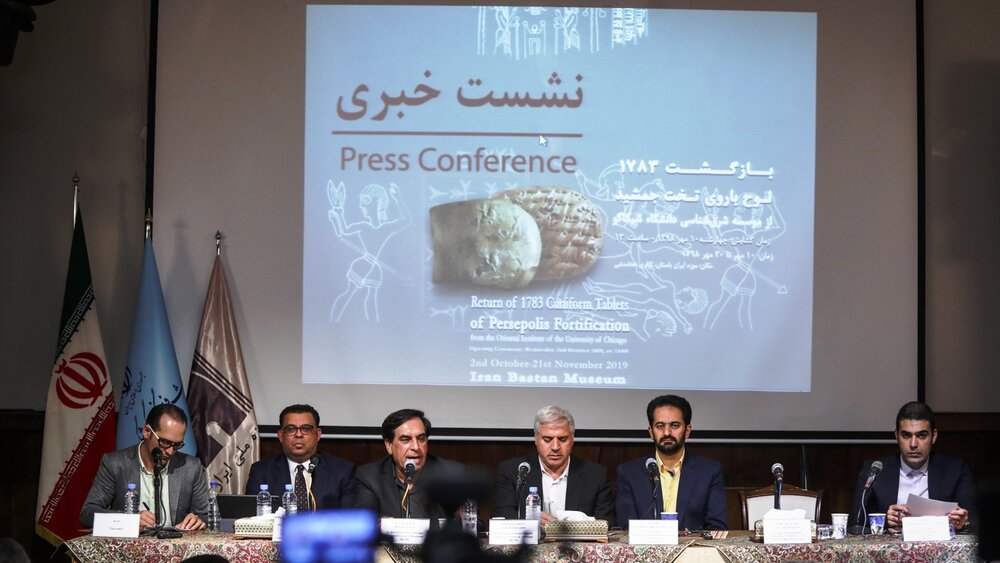We revealed how Achaemenids ruled Persia: Oriental Institute expert

TEHRAN – Years of deciphering and studying Achaemenid cuneiform clay tablets, which have been on loan from Iran to the Oriental Institute, has yielded valuable information about the Persian Empire, how it organized and how it ruled, a professor emeritus at the Institute has said.
They helped further the understanding of “how (Achaemenid) society was organized, how basic institutions of control and support worked”, Matthew Stolper told AFP on Wednesday.
Stolper emphasized the scientific interest of the works, saying “We’ve learned the names of some of the important people in the ruling class.”
“But more importantly, we learned how they ruled,” he noted, addressing a press conference before the opening ceremony of an exhibit, which put on show some 300 of the clay tablets at the National Museum of Iran in downtown Tehran.
Unearthed from the ruins of Persepolis, capital of the Persian Achaemenid Empire (6th - 4th c. BC) in the south of Iran, they belong to a group of 1,783 clay tablets or tablet fragments recently returned to Iran from the United States after a drawn-out legal saga.
In February 2018, and following years of ups and downs, the fate of those ancient Persian artifacts, was left in the hands of a U.S. Supreme Court, which ruled in favor of Iran.
“We fought very hard to keep them safe and spent millions of dollars so that we could return them” to Iran, said Christopher Woods, head of the University of Chicago’s Oriental Institute, referring to the legal fees incurred by the institute up until the U.S. Supreme Court decision.
“Hopefully we’ll return the second batch much faster and it will be a much larger group,” he added.
“The idea was always to return the tablets. They were on loan on us and we were entrusted with that cultural heritage. And we have a long history of borrowing objects and always returning them. So the Oriental Institute always returns objects that we were entrusted with as loans,” Press TV quoted Woods as saying.
In the 1930s, the university received from Iran on loan some 30,000 tablets or pieces of tablets found in Persepolis, for research purposes.
A large portion of the tablets were returned to Iran three times between 1948 and 2004, before the restitution was blocked by legal action of U.S. survivors of a 1997 bombing in Israel blamed on the Palestinian resistance movement of Hamas, Press TV reported.
Reprimanding Tehran for supporting the group, the plaintiffs demanded the seizure of the tablets and their sale in order to recover a sum of $71.5 million that Iran was sentenced by a U.S. court to pay in this case, the report said.
The proceedings only ended in February 2018 with a U.S. Supreme Court decision to ban the seizure of the tablets.
The Achaemenid [Persian] Empire was the largest and most durable empire of its time. The empire stretched from Ethiopia, through Egypt, to Greece, to Anatolia (modern Turkey), Central Asia and to India.
AFM/MG
